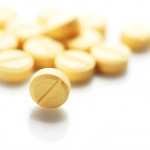
Local treatment of the infected tooth ( drainage, root canal treatment,extraction) should be the first-line management for any non-periodontal dental infection without systemic symptoms. When there are signs of symptomatic involvement most guidelines recommend monotherapy with a β-lactam antibiotic. Recommended first-line antimicrobial treatment consists of phenoxymethylpenicillin 500–1000 mg or amoxicillin 500–1000 mg for up to 5 days with review at 3 days. Metronidazole is second choice and the second most commonly prescribed antibiotic after amoxicillin in Scotland with dental use representing 59% of all primary care use.
The aim of this review was to understand whether metronidazole used as monotherapy or in addition to a β-lactam antibiotic offers any additional benefit over β-lactam monotherapy in non- periodontal dental infections.
Methods
A protocol was registered on the PROSPERO database. Searches were conducted in the Cochrane Library, Medline and Embase databases and the Clinical trials.gov and WHO International Trial Registry Platform for ongoing and unpublished studies. Two reviewers screened and selected studies and extracted data. Study quality was assessed using the Joanna Briggs Institute (JBI) tool for assessing risk of bias in randomized clinical trials (RCTs). Meta-analysis was planned but studies were too heterogenous.
Results
- 3 RCTs (parallel group) involving a total of 148 patients reported in 4 papers were included.
- 2 studies were conducted in the UK and one in Argentina.
- The study sample sizes were 31, 37 and 80 involving patients with pericoronitis or acute apical infection
- Two 2-armed studies compared the effectiveness of oral metronidazole monotherapy 200 mg 8 hourly for 3 days or 200 mg 6 hourly for 5 days with β-lactam monotherapy consisting of: one dose of penicillin G given intramuscularly (IM) followed by oral penicillin V 250 mg four times per day for 5 days or oral penicillin V 250 mg four times per day for 5 days plus paracetamol as required.
- One study compared oral metronidazole monotherapy 250 mg 8 hourly for 4 days in a four-arm study with oral amoxicillin 500 mg, oral erythromycin 500 mg or doxycycline 50 mg monotherapy administered three times per day for 4 days.
- All studies concluded equal efficacy of metronidazole and penicillin.
Conclusions
The authors concluded: –
metronidazole does not provide superior clinical results when compared with a β-lactam antibiotic for the treatment of non-periodontal dental infections. It should be noted that these conclusions are based on limited clinical trial evidence, with none more recent than 1982, this highlights the need for more current trials on antimicrobial efficacy for the management of dental infections.
Comments
The authors have searched a good range of databases and provided a protocol for the review in the PROSPERO database. The protocol indicated that only English language papers would be considered, this is not mentioned in the main publication and may have resulted in some relevant studies being excluded. The 3 included studies were all published before 1983 and are small with the largest study involving 80 patients with 4 separate arms. Given the size of the studies there is no mention of whether power calculations were undertaken so it is unclear as to whether they were sufficiently powered to detect a difference if one existed. The studies are quite heterogeneous so meta-analyses was not possible. So while the findings are suggestive of the fact that ‘metronidazole does not provide superior clinical results when compared with a β-lactam antibiotic for the treatment of non-periodontal dental infections.’ The findings should be viewed cautiously are the available evidence is limited in extent and quality.
Links
Primary Paper
Cooper L, Stankiewicz N, Sneddon J, Seaton RA, Smith A. Indications for the use of metronidazole in the treatment of non-periodontal dental infections: a systematic review. JAC Antimicrob Resist. 2022 Aug 9;4(4):dlac072. doi: 10.1093/jacamr/dlac072. PMID: 35959239; PMCID: PMC9361036.
Other references
SDCEP Drug Prescribing for Dentistry – Updated June 2021
Dental Elf – 3rd Mar 2021
Dental Elf – 24th Jun 2022
